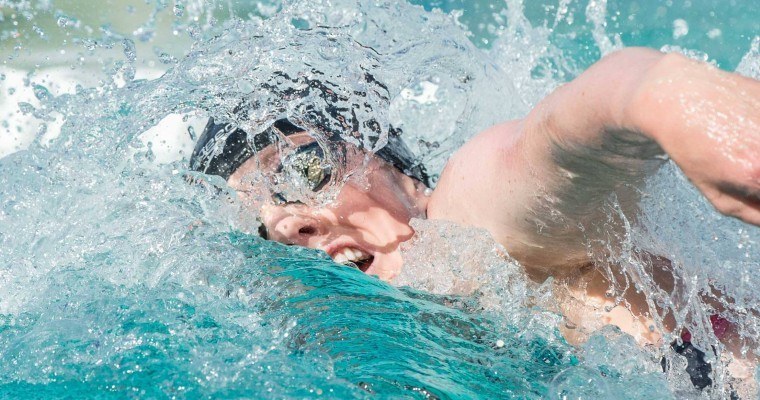Athletes at all levels experience the pressures of competition. Such pressures may come from parents, coaches, teammates or, most likely, from the athletes own expectations for their performance. While these pressures are quite common they are sure to limit an individual’s level of competitive intensity by taking the focus away from what they already do well, and putting it squarely on the outcome. Where do these self-imposed pressures come from, and what can athletes do to manage them?
It is fair to say that we live in a negativity culture. Television, magazines, media and peer influences seem to place a constant focus on what can, or does, go wrong. This necessarily creates a negativity bias in our brain, and for athletes, leads to performance limitations. Rather than focusing on the task at hand many swimmers report thinking of the “dire” consequences of a perceived poor performance. This type of negative thinking takes away from the positive energy needed to generate a powerful performance, and in reality, prophesizes a disappointing one. I remember talking with a foreign born Olympic medalist some years ago about the pressures he felt from his fellow countrymen to win Gold. By the time he got up to the block he was so fraught with worry that he wasn’t even focused on the start.
So, how can swimmers alleviate these societal and self-imposed pressures? According to psychologist and researcher Carol Dweck, we can either approach challenges with a growth mindset (I love a challenge…I am going to get there…I am curious about where this leads) or a fixed mindset (I am judged as good or not so good, and nothing will change that). Chances are, many of us bring a fixed mindset with us to our endeavors. What is required to maximize potential, however, is a growth mindset that focuses on being the best we can be in any given circumstance, regardless of the outcome. This type of thinking generates mental toughness and resilience, and results in a happier and healthier athlete who, interestingly, performs better! In effect, you approach challenges not as a comment on who you are, but on how these challenges will help you grow. How fun is that!
In your next practice, or meet, try focusing only on what it is you can control, with the intent to free yourself from expectations and be curious about what you might learn from the experience.
Focus on What You Can Control
- Positive attitude
- Value as a teammate
- Commitment to excellence
- Courage to try new things
- Technique
- Competitive instinct
- Training intensity
Try it. You just might like what happens next.
 About Pete Thompson
About Pete Thompson
Pete has worked in the sport psychology and human development fields with Fortune 500 companies, Division I,II, and III collegiate athletes, as well as high school and middle school staff and students. He has 30 years of experience coaching swimming at the high school, club, and collegiate levels- All-Americans, numerous individual and team champions including two Olympic hopefuls. His life coaching sessions for adolescents are designed to create challenge, teach resilience, and instill self-esteem. You can visit his website here.


i am sure coach thompson’s work with young people is beneficial in both the pool and in life. keep up the good work! sport and the world in general need more coach thompsons.
This is worth the watch! Attitude!
https://www.facebook.com/video.php?v=780409558672004